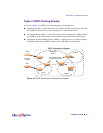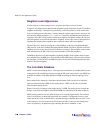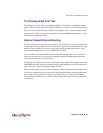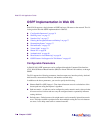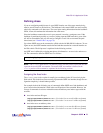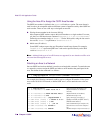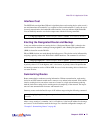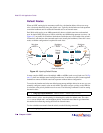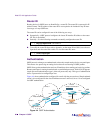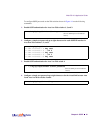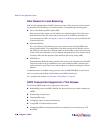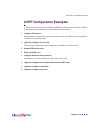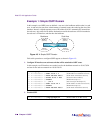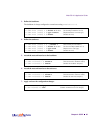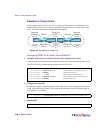
Web OS 10.0 Application Guide
Chapter 4: OSPF
79
212777-A, February 2002
Virtual Links
Usually, all areas in an OSPF AS are physically connected to the backbone. In some cases
where this is not possible, you can use a virtual link. Virtual links are created to connect one
area to the backbone through another non-backbone area (see Figure 4-1 on page 70).
The area which contains a virtual link must be a transit area and have full routing information.
Virtual links cannot be configured inside a stub area or NSSA. The area type must be defined
as transit using the following command:
The virtual link must be configured on the routing devices at each endpoint of the virtual link,
though they may traverse multiple routing devices. To configure an Alteon Web switch as one
endpoint of a virtual link, use the following command:
where <link number> is a value between 1 and 3, <area index> is the OSPF area index of the
transit area, and <router ID> is the IP address of the virtual neighbor (nbr), the routing device
at the target endpoint. Another router ID is needed when configuring a virtual link in the other
direction. To provide the Alteon Web switch with a router ID, see the following section Router
ID.
For a detailed configuration example on Virtual Links, see “Example 2: Virtual Links” on page
86.
>> # /cfg/ip/ospf/aindex <area index>/type transit
>> # /cfg/ip/ospf/virt <link number>/aindex <area index>/nbr <router
ID>



